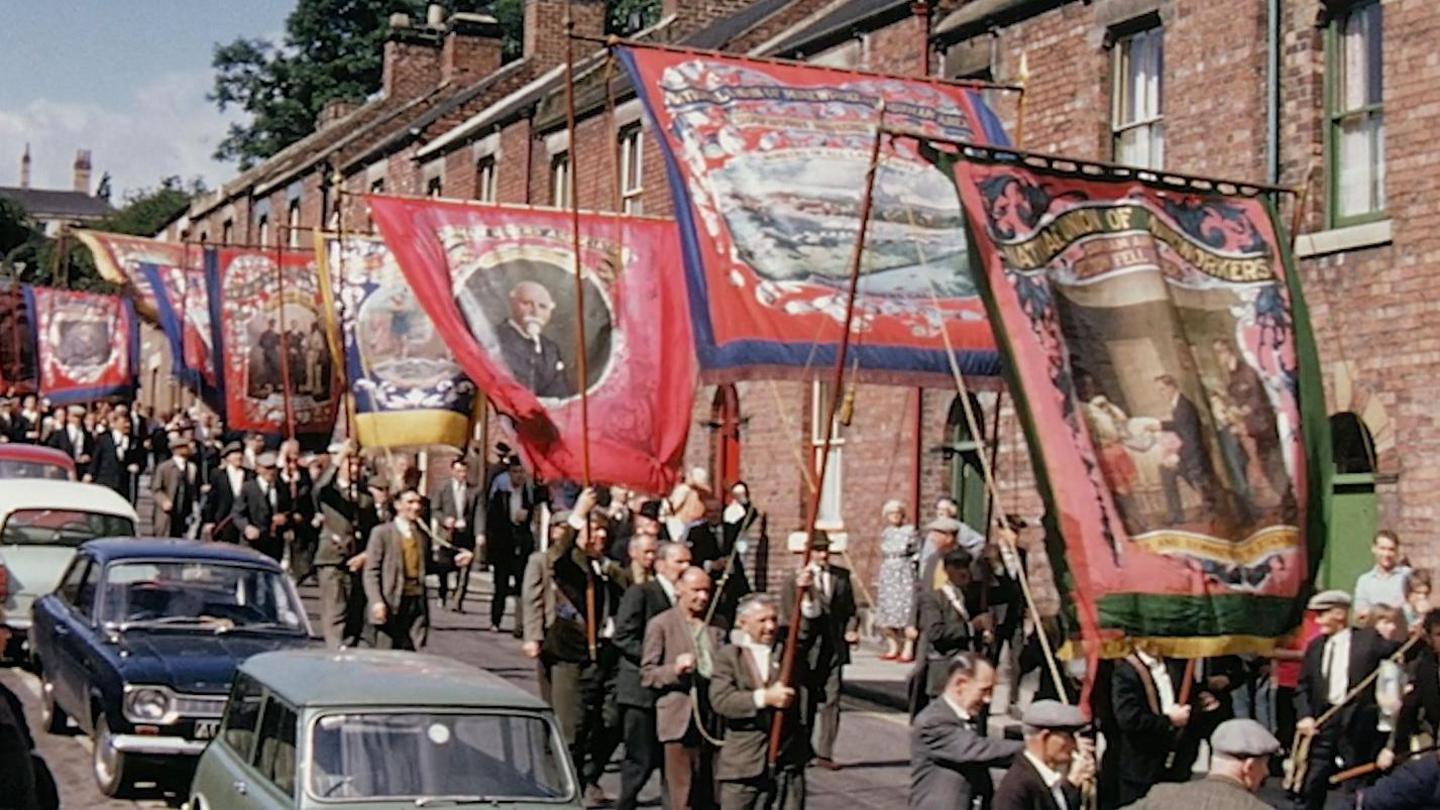Coal dust vinyl record aids 'carbon future' talks
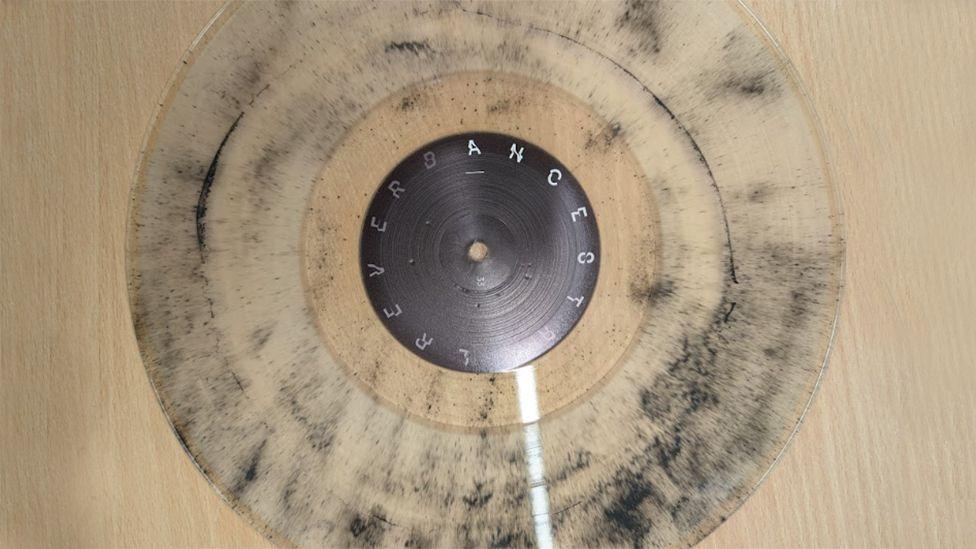
Only 100 vinyl records were made and a copy was given to each family interviewed
- Published
A vinyl record made with coal dust will help start community discussions about climate change, its creators hope.
Ancestral Reverb features brass band music spanning 100 years, interviews with North East coal miners and their families, as well as recordings of the sound of the old drift mine at Beamish Colliery in County Durham.
Adam Cooper, director of arts charity Threads in the Ground which created the project, said pit communities rarely had a "proper opportunity" to talk about climate change and what it means for them.
Lorraine Maylan, who was an activist during the Miners' Strike and took part in the recording, said the project was not "nostalgic or rose-tinted".
"Nostalgia can be dangerous. This is about valuing people's voices, recognising sacrifices, and learning from history, looking forwards," she said.
The coal dust used to make the record was collected from the beach at Blackhall Colliery.
Mr Cooper said the idea for the record came after he found out vinyl contains carbon powder.
Only 100 copies of the vinyl were made with some held in the archives of Redhills Durham Miners' Hall, The National Coal Mining Museum, and the British Library.
Each family interviewed for the project also received a copy.
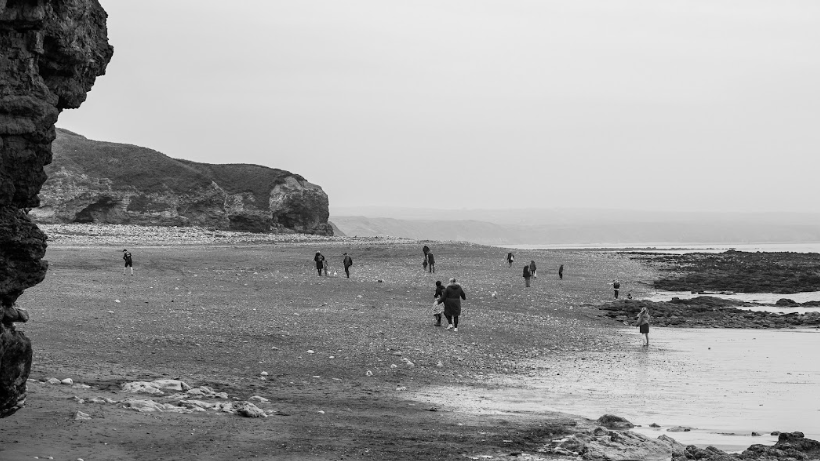
Coal dust to embed in the vinyl record was collected at Blackhall Colliery beach
The record is being unveiled as part of the renewable energy transition conference at the once home of the Pitman's Parliament in Durham this week.
Mr Cooper said the project had been two years in the making.
More than 30 families, including coal miners and their descendants, were interviewed for a spoken word segment for the record.
The interviewees, aged from five to 94, discussed coal mining heritage and climate change.
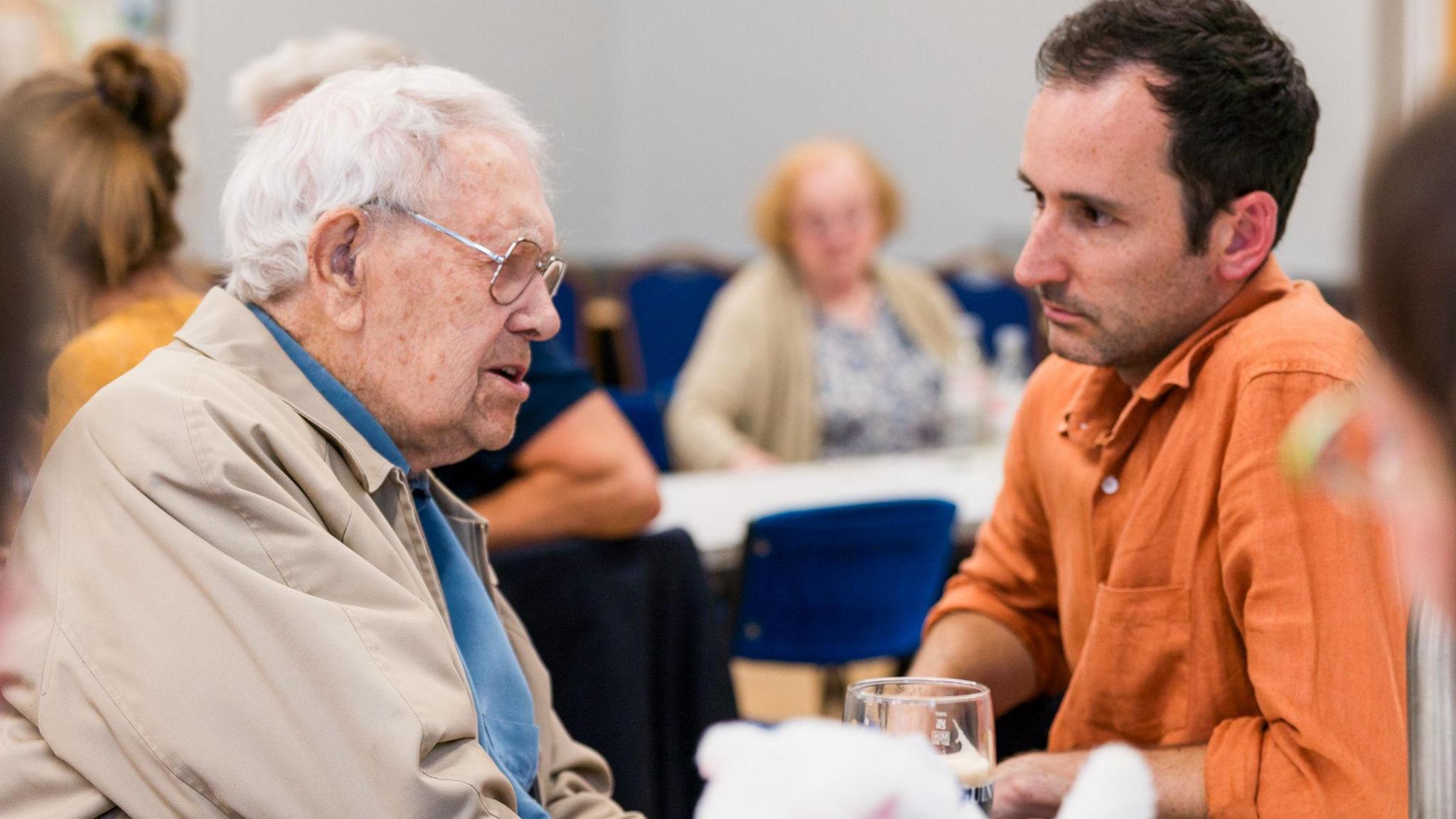
Mr Cooper, right, says people have "connected emotionally" with the project
"It's hard work for anybody talking about climate change and what it means for them, but it's very rare that our pit communities have a proper opportunity to do that kind of exploration together," Mr Cooper said.
"People generally found it a really interesting conversation and one that they're not welcomed to have very often."
Ms Maylan said she was a miner's daughter "with a long memory".
Her dad was a first-generation miner at Dawdon Colliery and her husband's father was also a miner.
"It's very strongly part of my identity," she said.
The 63-year-old said she hoped Ancestral Reverb would encourage debate.
"It hopefully gets people talking and thinking.
"Global issues are bigger than us, but that doesn't mean that we can't have a say, we can't have a voice.
"If we sort ourselves out, we can have an impact too."
'Mess we made'
Daughter and granddaughter of miners, Alison Paterson, is the manager of the Blackhall Community Centre, which was once the miners' welfare hall.
"Former coalfield regions face deprivation and huge challenges, but it's important to celebrate our incredible qualities too - the community values and resilience," she said.
"Ancestral Reverb allows the people to tell their real stories.
"It's saying, this is a mess we made, but look at the beauty that's been created."
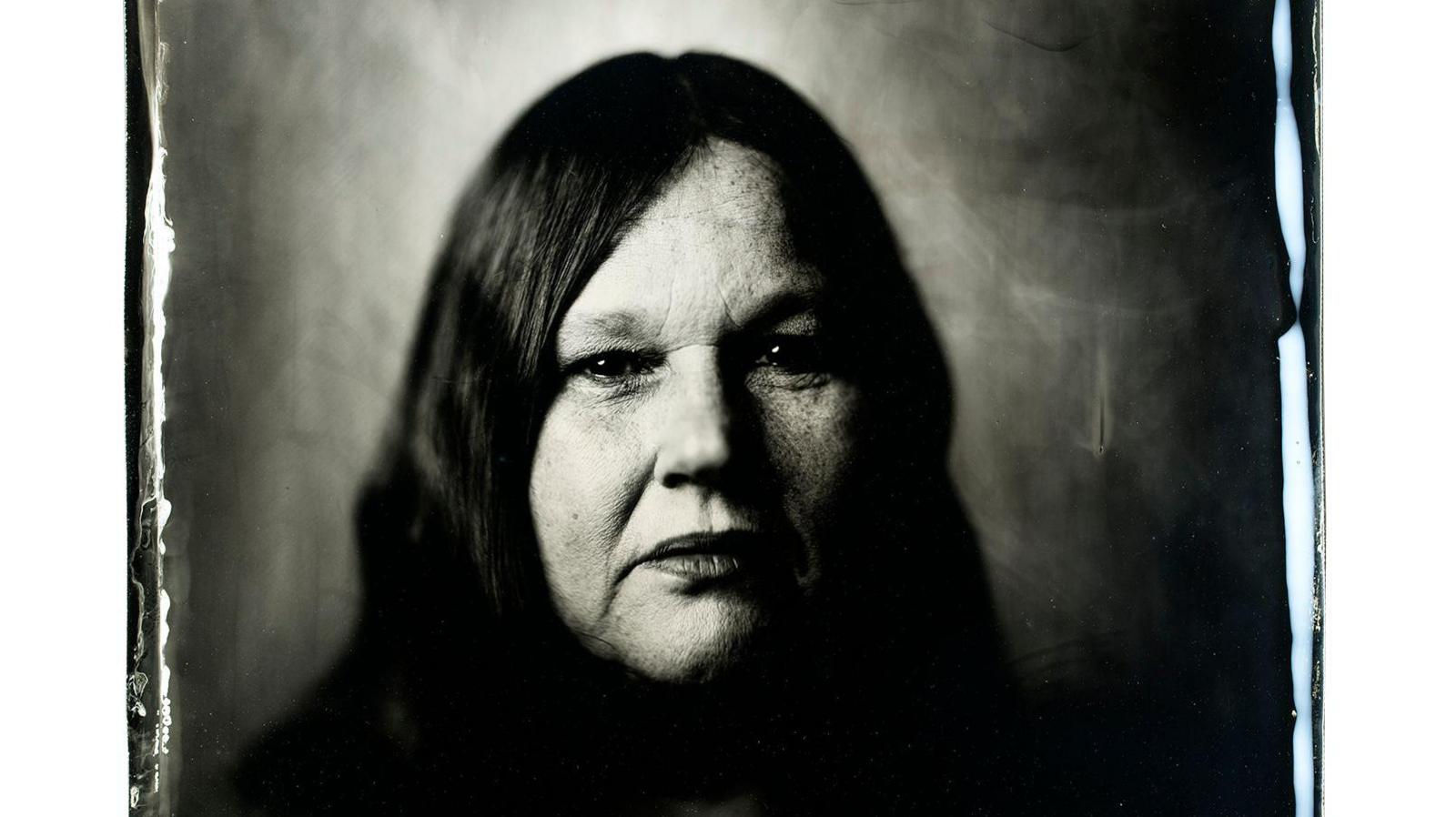
Lorraine Maylan hopes the project will encourage debate
The 20-minute track was played to about 200 people spanning four generations at at the community centre.
"There were tears. There was a profound moment of silence after that first playing," Mr Cooper said.
"I think that people have really connected with it emotionally."
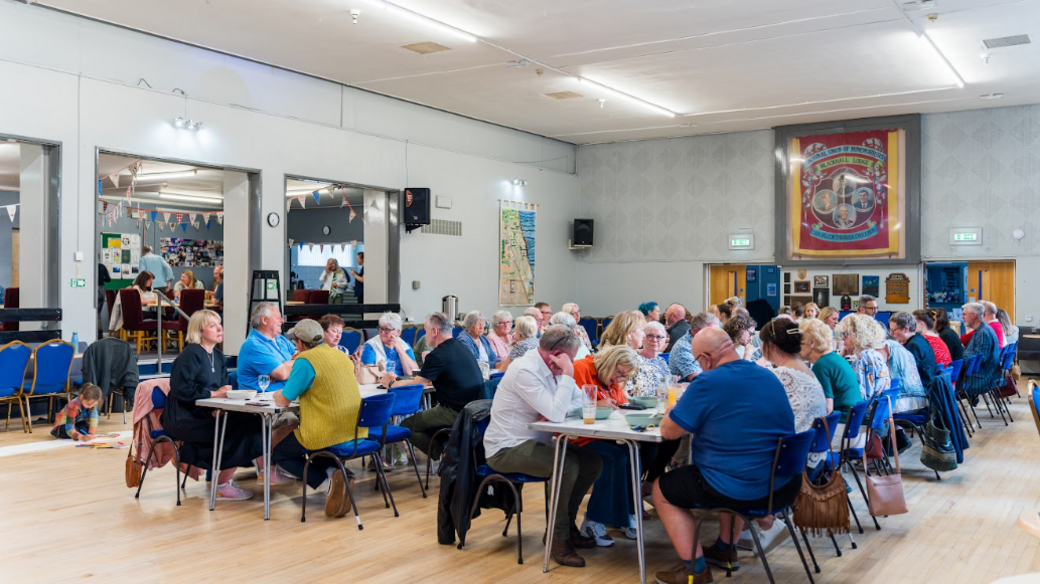
Blackhall Community Centre hosted a listening party for the record
Follow BBC North East on X, external, Facebook, external, Nextdoor and Instagram, external.
Get in touch
Do you have a story suggestion for BBC Wear?
Related topics
- Published12 October 2024
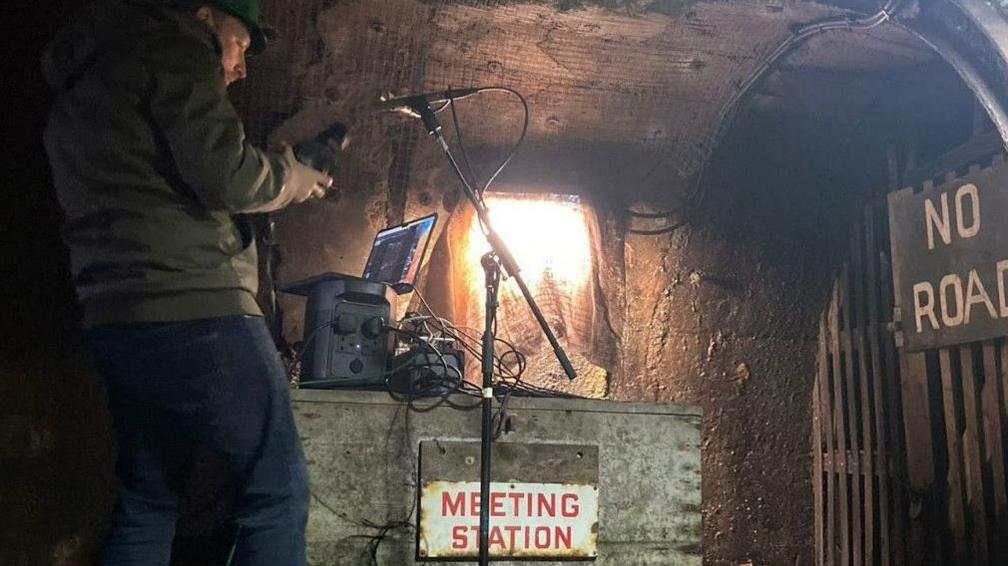
- Published11 October
